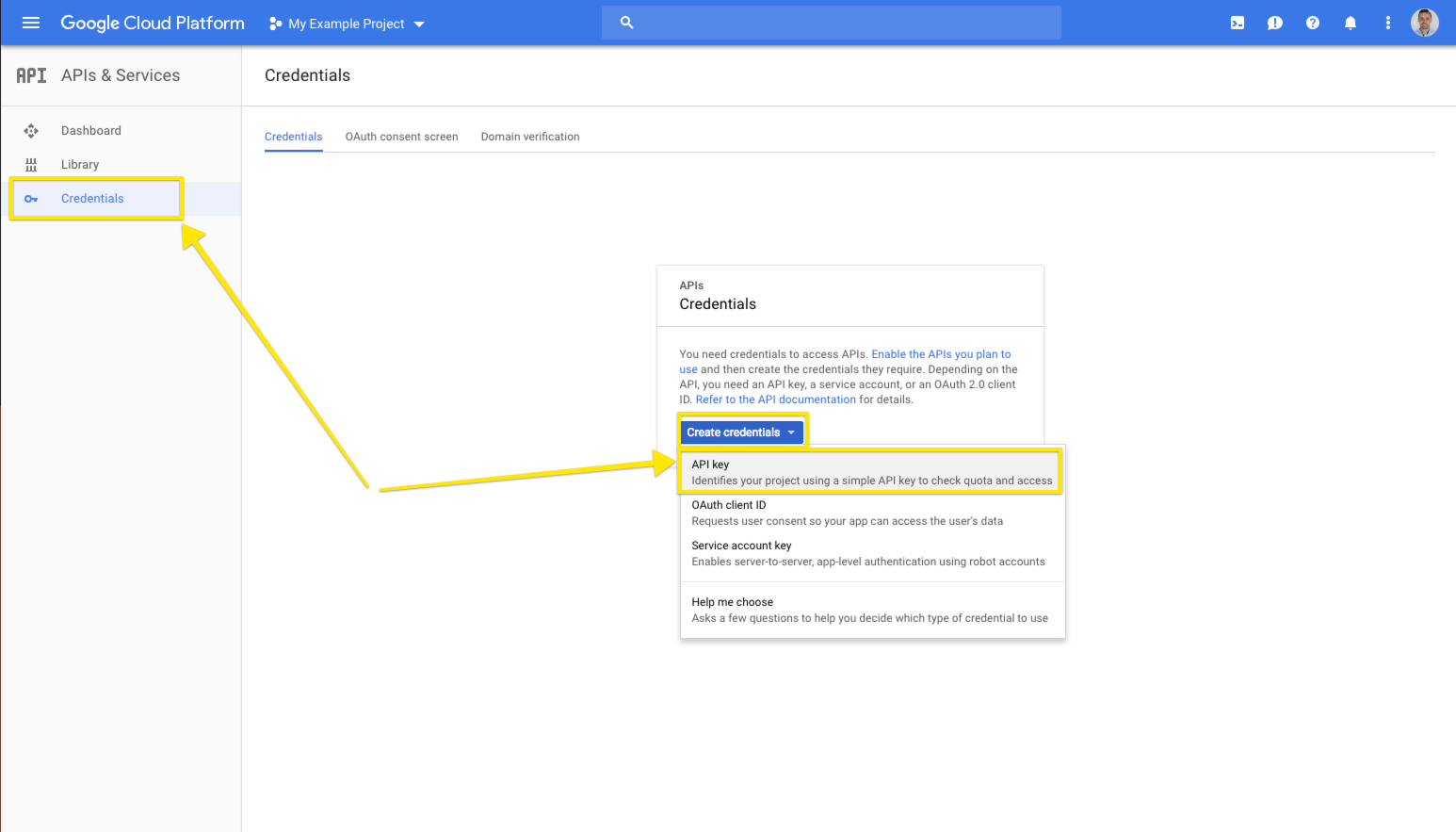Generate And Setup Google Maps API Keys. Note, this tutorial in some steps refers to the GEO my WP plugin. However, the steps to create the API keys are the same for other geolocation plugins as well. Mar 03, 2020 This guide shows how to create API keys, and how to set up API key restrictions, for Google Cloud applications. To learn more about authenticating to a Google Cloud API, see Authentication overview.For information about API keys for.
- Generate Api Key For Google Map Android
- Online Api Key Generator
- How To Find Api Key
- Generate Google Map Api Key For Localhost
To use the Bing Maps APIs, you must have a Bing Maps Key.
Note
When you use the Bing Maps APIs with a Bing Maps Key, usage transactions are logged. See Understanding Bing Maps Transactions for more information.
Creating a Bing Maps Key
Go to the Bing Maps Dev Center at https://www.bingmapsportal.com/.
- If you have a Bing Maps account, sign in with the Microsoft account that you used to create the account or create a new one. For new accounts, follow the instructions in Creating a Bing Maps Account.
Select My keys under My Account.
Select the option to create a new key.
Provide the following information to create a key:
Application name: Required. The name of the application.
Application URL: The URL of the application. This is an optional field which is useful in helping you remember the purpose of that key in the future.
Key type: Required. Select the key type that you want to create. You can find descriptions of key and application types here.
Application type: Required. Select the application type that best represents the application that will use this key. You can find descriptions of key and application types here.
Click the Create button. The new key displays in the list of available keys. Use this key to authenticate your Bing Maps application as described in the documentation for the Bing Maps API you are using.
Upgrading Your Account
If you want to upgrade your account to be an enterprise account, contact Bing Maps for Enterprise.
Bing Maps Terms of Use
For information on Bing Maps usage rights, see Microsoft® Bing™ Map Platform APIs Terms of Use.
Usage Transactions
When you use the Bing Maps APIs with a valid Bing Maps Key, usage transactions are logged.
You can view detailed reports of your Bing Maps usage in the Bing Maps Dev Center. For more information, see Understanding Bing Maps Transactions.
[ aws . apigateway ]
Description¶
Create an ApiKey resource.
See also: AWS API Documentation
See 'aws help' for descriptions of global parameters.
Synopsis¶
Options¶
--name (string)
--description (string)
--enabled--no-enabled (boolean)
--generate-distinct-id--no-generate-distinct-id (boolean) /starcraft-brood-war-key-generator.html.
--value (string)
--stage-keys (list)
Shorthand Syntax:
JSON Syntax:
--customer-id (string)
--tags (map)
Shorthand Syntax:
JSON Syntax:
--cli-input-json (string)Performs service operation based on the JSON string provided. The JSON string follows the format provided by --generate-cli-skeleton. If other arguments are provided on the command line, the CLI values will override the JSON-provided values. It is not possible to pass arbitrary binary values using a JSON-provided value as the string will be taken literally.
--generate-cli-skeleton (string)Prints a JSON skeleton to standard output without sending an API request. If provided with no value or the value input, prints a sample input JSON that can be used as an argument for --cli-input-json. If provided with the value output, it validates the command inputs and returns a sample output JSON for that command.
See 'aws help' for descriptions of global parameters.
Examples¶
To create an API key that is enabled for an existing API and Stage

Generate Api Key For Google Map Android
Command:
Output¶
id -> (string)
value -> (string)
name -> (string)
customerId -> (string)
description -> (string)
enabled -> (boolean)
createdDate -> (timestamp)
lastUpdatedDate -> (timestamp)
Online Api Key Generator
stageKeys -> (list)
A list of Stage resources that are associated with the ApiKey resource.
(string)
tags -> (map)
How To Find Api Key
The collection of tags. Each tag element is associated with a given resource.
key -> (string)
Generate Google Map Api Key For Localhost
value -> (string)